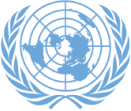Statement delivered by H.E. Carolyn Rodrigues-Birkett, Permanent Representative of the Co-operative Republic of Guyana to the United Nations following the adoption of a resolution on “International Day to Combat Islamophobia” at the United Nations General Assembly on March 15, 2022
Mr. President,
The Government of Guyana recognizes that any form of discrimination against individuals on the basis of their religion is a violation of their human rights and contrary to the purposes and principles of the United Nations Charter as well as the Universal Declaration of Human Rights.
In this context, we note with concern the rising incidence of religious intolerance across the globe, sometimes evidenced by acts of violence and discrimination against persons of religious communities.
As a pluralist society where Islam is one of the main religions practiced, Guyana is supportive of global action that seeks to stem this tide of intolerance, discrimination and violence. My delegation was therefore pleased to join as co-sponsor of resolution A/76/L.41 and thanks the General Assembly for its support for the consensus adoption of the resolution.
Mr. President,
The designation of an International Day to Combat Islamophobia is an important step towards addressing this scourge and its growing adverse impacts on the lives of many Muslims. My delegation has taken note of the Report of the Special Rapporteur on the freedom of religion or belief to the 46th session of the Human Rights Council in which focus was given to countering Islamophobia. In that report, the Special Rapporteur observed that “widespread negative representations of Muslims, fear of Muslims generally” and drawing correlations between Muslims and security threats have “served to perpetuate, validate and normalize discrimination, violence and hostility towards Muslims and Muslim communities.” At the core of these behaviours is a lack of understanding of the religion and the acceptance of negative stereotypes about its adherents.
The consequences of Islamophobia often translate into negative socio-economic impacts, including reduction in employment opportunities, which in turn results in this group of persons being disproportionately affected by poverty and its attendant effects. Further, Islamophobia has impacted access by Muslims to education, healthcare and housing in some parts of the world. These trends are all contrary to the aspiration contained in the 2030 Agenda for Sustainable Development to leave no one behind. It behooves us, therefore, to be more systematic in our work to eliminate Islamophobia and every other form of religious intolerance.
Islamophobia remains poorly understood and as such, efforts to combat it should entail awareness-raising at the national, regional, and international levels. The designation of an International Day to Combat Islamophobia is a welcome step in this direction. Additionally, all Member States, including those which host Muslim populations should be encouraged to respect the religion of Islam, its worshippers and their places of worship as part of promoting cultural enrichment in their societies and, more broadly, a global culture of tolerance and peace.
I thank you.


